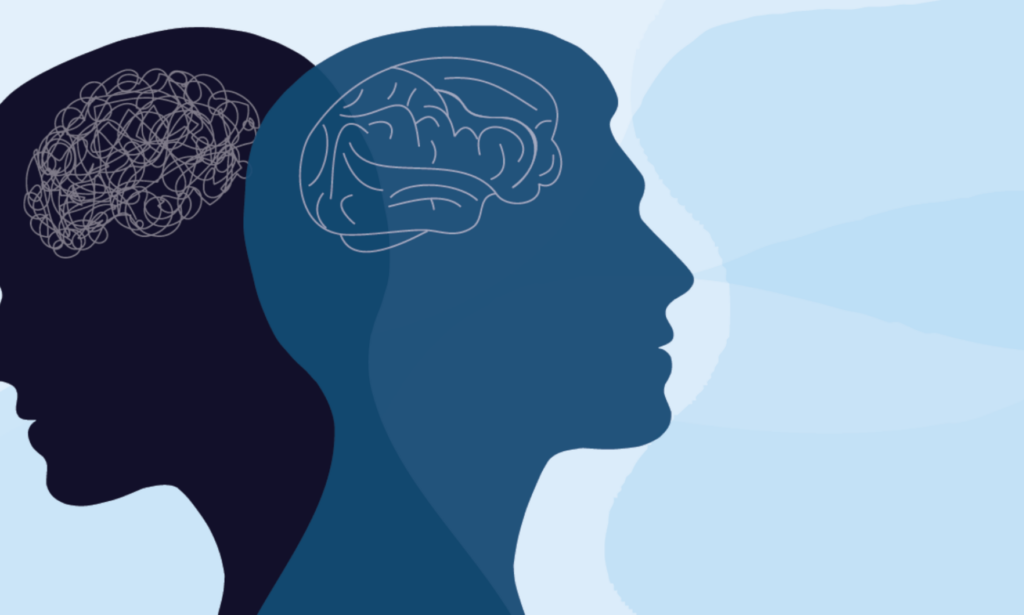MENTAL HEALTH FOR A BETTER TOMORROW BY EUGENE NANVEN

MENTAL HEALTH FOR A BETTER TOMORROW

Mental health is a critical aspect of our overall well-being, yet it remains one of the most misunderstood and neglected areas of healthcare. It encompasses our emotional, psychological, and social well-being, affecting how we think, feel, and act. From childhood through adulthood, mental health influences our ability to handle stress, relate to others, and make choices. Despite its importance, mental health often takes a backseat to physical health, leading to widespread stigma and discrimination.
Stigma is one of the biggest barriers to seeking help. People with mental health conditions frequently face judgment and ostracization, which can deter them from accessing the care they need. This stigma is rooted in misconceptions and lack of understanding, perpetuating a cycle of silence and neglect. As a result, many individuals suffer in isolation, unable to reach out for support due to fear of being misunderstood or labeled.
Access to mental health care is another significant challenge, especially in low- and middle-income countries where resources are limited. There is often a severe shortage of mental health professionals and facilities, leaving many without the necessary support. Even in more affluent regions, access can be uneven, with long waiting times and high costs preventing timely intervention.
The economic burden of mental health conditions is immense.
The World Health Organization estimates that the global economy loses $1 trillion each year in productivity due to depression and anxiety alone.
This financial strain affects not just individuals and families, but also society, highlighting the need for substantial investment in mental health services.
Education and awareness are crucial in changing perceptions about mental health. Misconceptions persist, contributing to inadequate support systems and resources. Through education, we can dispel myths and promote a more compassionate and informed understanding of mental health. This involves integrating mental health education into schools, workplaces, and community programs to foster a culture of openness and support.
Recent advancements in technology have brought new opportunities for mental health care. Teletherapy and mental health apps have made services more accessible, particularly for those in remote or underserved areas. These innovations provide flexible and immediate support, allowing individuals to seek help in a more convenient and less stigmatizing manner.
Integrating mental health services into primary care settings has also shown promise. By making mental health a routine part of health check-ups, we can ensure early intervention and reduce the stigma associated with seeking help. This holistic approach recognizes that mental health is integral to overall health and well-being.
Looking ahead, continued advocacy is essential to keep mental health on the global agenda. Governments, organizations, and individuals must work together to push for policies that prioritize mental health and provide adequate funding for services. This includes increasing the availability of mental health professionals, improving access to care, and fostering environments that support mental well-being.
Overcoming and avoiding mental health issues involves a combination of proactive measures and effective support systems. Here are some strategies to promote mental well-being and prevent mental health problems:
1. Maintain a Healthy Lifestyle: Regular exercise, a balanced diet, and sufficient sleep are fundamental to mental health. Physical activity releases endorphins, which can improve mood, while a nutritious diet supports brain function.
2. Manage Stress: Learning to manage stress is crucial. Techniques such as mindfulness, meditation, and deep breathing exercises can help reduce stress levels. Additionally, setting realistic goals and taking breaks when needed can prevent burnout.
3. Build Strong Relationships: Social connections are vital for mental well-being. Building strong, supportive relationships with family, friends, and colleagues can provide emotional support and a sense of belonging.
4. Seek Professional Help: If you’re struggling with your mental health, don’t hesitate to seek professional help. Therapists, counselors, and psychiatrists can provide guidance, support, and treatment options tailored to your needs.
5. Engage in Activities You Enjoy: Participating in hobbies and activities you enjoy can boost your mood and provide a sense of fulfillment. Whether it’s reading, painting, playing sports, or volunteering, finding joy in activities can positively impact your mental health.
6. Practice Self-Care: Make time for self-care activities that relax and rejuvenate you. This could include taking a walk in nature, listening to music, or spending time with loved ones. Self-care is not a luxury but a necessity for maintaining mental health.
7. Limit Alcohol and Avoid Drugs: Excessive alcohol consumption and drug use can exacerbate mental health issues. Limiting these substances can help maintain a clearer mind and better emotional stability.
8. Stay Informed and Educated: Educate yourself about mental health and stay informed about the resources available. Understanding the signs and symptoms of mental health conditions can help you recognize them in yourself and others, leading to earlier intervention and support.
Mental health is a universal concern that affects us all. By raising awareness, promoting understanding, ensuring access to care, and adopting proactive measures, we can create a world where mental health is given the attention and resources it deserves. This is not just a healthcare issue, but a societal imperative.
Together, we can break the silence, end the stigma, and pave the way for a healthier, more compassionate future for all. This is part of my effort in building a better world for all.
EUGENE N NANVEN Writes from Gwagwalada Abuja
(June 24, 2024)




